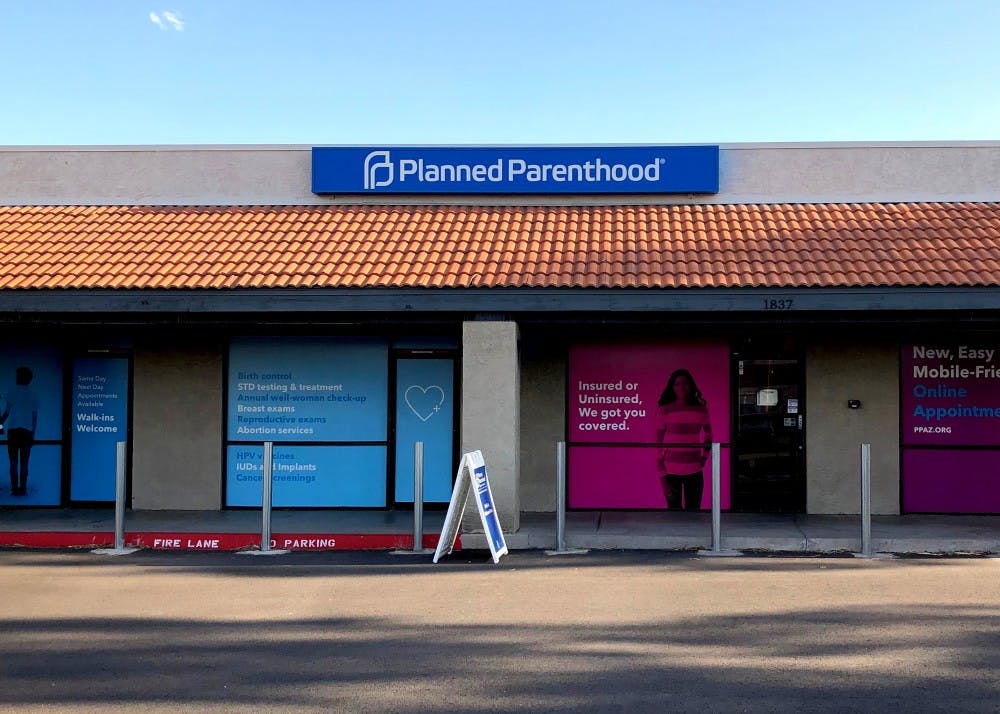ASU health specialists are worried about the repercussions of Planned Parenthood announcing its withdrawal from the Title X program last month.
The move comes after the U.S. Department of Health and Human Services added a condition stating that facilities accepting Title X funds cannot refer patients to doctors that perform abortions.
“What we have right now is the most restrictive set of changes to the federal funding and regulation of family planning services since the inception of Title X,” said Swapna Reddy, a professor at the College of Health Solutions.
Title X is a federal grant program designed to fund organizations that provide women’s reproductive health and family planning services to underserved patients. The funding goes to uninsured and low-income patients who may not otherwise have access to these services.
After multiple legal battles over the issue, Planned Parenthood decided to withdraw from Title X rather than comply with the new rule.
Reddy said the new rule also stipulated that Title X funds cannot be spent in any facility located in the same building as an abortion clinic, whereas previously the funds could be spent on non-abortion services in a clinic that performs abortions.
Federal law prohibits the use of taxpayer dollars to pay for abortions.
ASU faculty expressed concern about the impact this withdrawal will have on the local community and ASU students.
“This has incredible impact,” Reddy said. “Especially in places like Arizona, where you don’t have a lot of physicians or primary care clinics, especially in women’s health services and especially in the rural areas."
Tayler Tucker, the media relations manager at Planned Parenthood Arizona, said that Title X facilities will face serious changes because of the withdrawal.
“We covered what is about 53% of patients in Arizona,” Tucker said. “That’s around 19,000 or so patients that are seen or visits that end up happening.”
Tucker said that case studies show this shift in providers will dramatically change Title X care in Arizona.
“All the other federally qualified health centers that participate in the Title X program will have to up their case loads by 111% to be able to make up for our being forced out of the program,” Tucker said. “That’s a huge task to undertake. It won’t mean they won’t be able to take in those folks, but you’re gonna be looking at longer lines, longer waiting times to get an appointment."
Tucker also said patients must now navigate economic decisions to afford their care and figure out transportation to farther clinics.
“We’re going to be looking at a delay in care, as well as I would say certain people will fall through the cracks,” Tucker said.
Denise Link, a nurse practitioner focusing on women’s reproductive health and a professor at the College of Nursing and Health Innovation, said Title X's comprehensive and confidential care serves many ASU students.
“One of the important aspects of the Title X program is that it pays for everything," Link said. "It covers everything from exams, whatever tests came under the program and the method of birth control.”
Link said that although ASU Health Services can handle student’s health issues very well, students sometimes prefer to use Title X through Planned Parenthood.
“Health Services here at the University is very robust, we offer a lot of services but you know there's still going to be some gaps that we aren't able to fill,” said Link.
When it comes to services including contraception and STI treatment, Link said sometimes patients prefer to keep that confidential.
“If someone comes into my office where I'm practicing now, and they have insurance but they don't want the nature of their visit to be disclosed to someone by getting an estimate of benefits sent to their house, then I would recommend that they go to Planned Parenthood and get Title X funding," Link said.
ASU Health Services said in a statement that they are committed to providing care for students as well as helping them work through the American healthcare system.
"We encourage any student affected by any change in any coverage or policy to work with our patient referral and advocacy team to develop a plan for care,” Health Services associate administrator Kathleen Easter said in an email.
ASU student Asha Ramakumar said that even though the Trump administration passed the new rule, Planned Parenthood withdrawing might be doing more damage than furthering progress.
Ramakumar, a senior studying business who researches with Reddy, said Planned Parenthood's decision is having an effect on communities that have very limited options.
“You’re looking at low-income populations and you’re restricting something," Ramakumar said. "There are reasons why the Title X funds were in place, to serve an underserved community. With Planned Parenthood refusing those funds, they’re cutting off access to a lot of other services, and that’s really problematic.”
Reach the reporter at gmlieber@asu.edu or follow @G_Mira_ on Twitter.
Like The State Press on Facebook and follow @statepress on Twitter.




